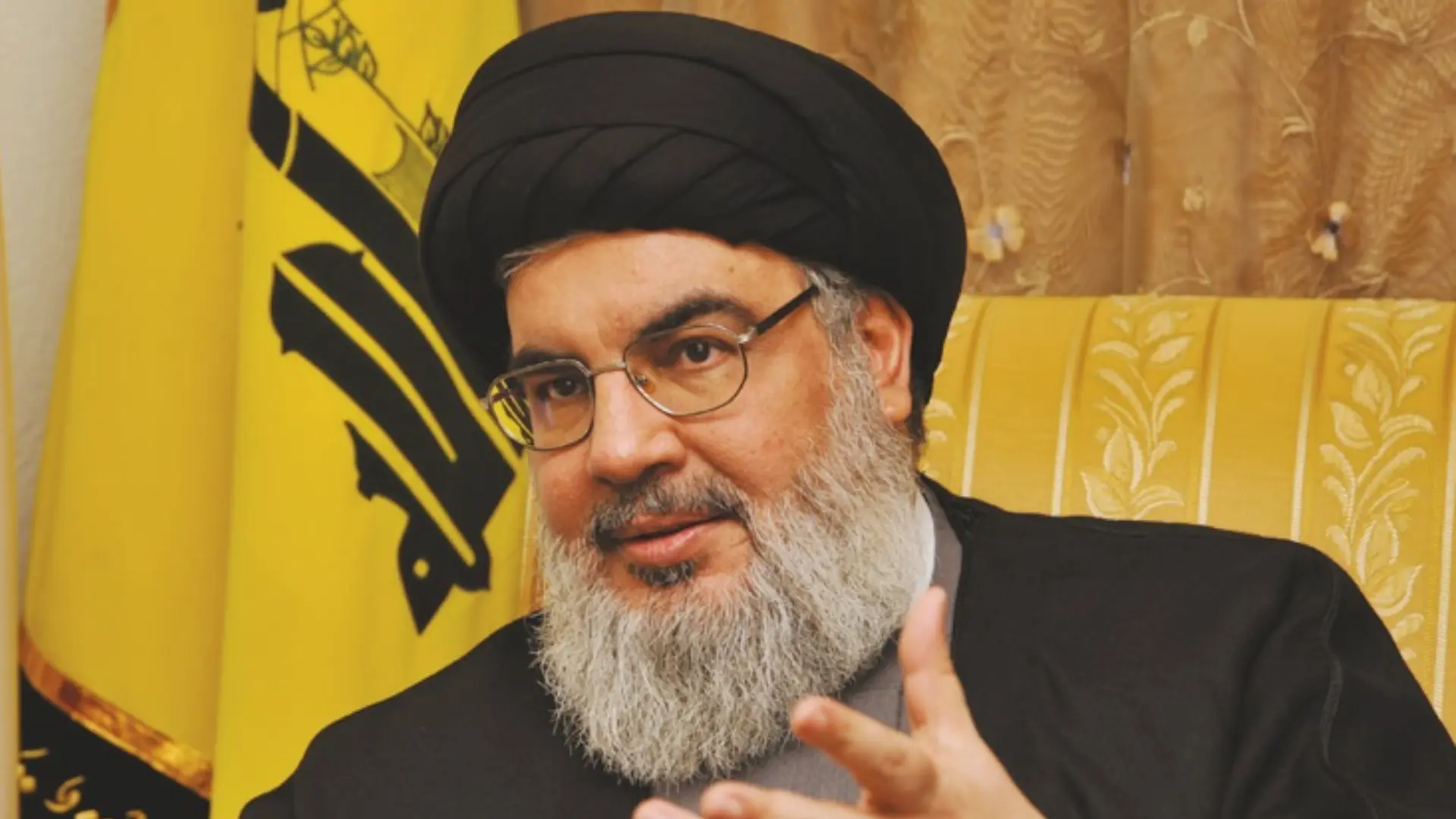Israeli military spokesperson Avichay Adraee announced on Saturday that Hezbollah leader Hassan Nasrallah, who led the Iran-backed group for 32 years, has been confirmed dead following an Israeli strike in Beirut’s southern suburbs that targeted Hezbollah’s headquarters.
“Hassan Nasrallah will no longer be able to terrorize the world,” the Israel Defence Forces stated on X (formerly Twitter). Hassan Nasrallah, leader of Lebanon’s Shia Islamist Hezbollah movement, was a prominent figure in the Middle East for decades.
Nasrallah, who had not appeared publicly for years due to fears of an Israeli assassination attempt, was reportedly the target of Friday’s airstrike in Beirut.

BREAKING:
Israel confirms that Hassan Nasrallah was killed in yesterday’s airstrike.
And with him, Hezbollah’s entire chain of command is gone. pic.twitter.com/nj93oObGjf
— Visegrád 24 (@visegrad24) September 28, 2024
What Exactly Happened?
The IDF announced on September 27, 2024, that Hassan Nasrallah, the leader of the Hezbollah terrorist organization and one of its founders, was eliminated by the IDF, together with Ali Karki, the Commander of Hezbollah’s Southern Front, and additional Hezbollah commanders.
In the official announcement, IDF further said that following precise intelligence from the IDF and Israeli security establishment, IAF fighter jets conducted a targeted strike on the Central Headquarters of the Hezbollah terrorist organization, which was located underground embedded under a residential building in the area of Dahieh in Beirut. The strike was conducted while Hezbollah’s senior chain of command were operating from the headquarters and advancing terrorist activities against the citizens of the State of Israel.
Who was Hassan Nasrallah?
A figure deeply connected with Iran, Nasrallah was instrumental in transforming Hezbollah into the political and military entity it is today and remained highly respected among its supporters.
Under Nasrallah, Hezbollah assisted in training fighters from Hamas as well as militias in Iraq and Yemen, and obtained rockets and missiles from Iran for use against Israel.
He led Hezbollah’s evolution from a militia that resisted Israeli occupation in Lebanon to a powerful military organization stronger than the Lebanese army. He also turned Hezbollah into a major political force in Lebanon, a provider of social services, and a key player in Iran’s regional influence.
Born in 1960, Nasrallah grew up in Beirut’s Bourj Hammoud neighborhood, where his father ran a small grocery store. He was the eldest of nine siblings.
Nasrallah joined the Shia Amal movement during Lebanon’s civil war in 1975. After spending time at a Shia seminary in Iraq’s holy city of Najaf, he returned to Lebanon and eventually broke away from Amal in 1982 following Israel’s invasion. The new group, Islamic Amal, received substantial support from Iran’s Revolutionary Guards and later evolved into Hezbollah.
Nasrallah steadily rose through Hezbollah’s ranks, holding key roles in Baalbek, the Bekaa region, and Beirut. He took over leadership of Hezbollah in 1992 after his predecessor Abbas al-Musawi was assassinated in an Israeli strike.
One of Nasrallah’s initial actions as Hezbollah’s leader was to retaliate for Musawi’s assassination. He ordered rocket attacks on northern Israel, resulting in the death of a young girl, and directed attacks on Israeli officials in Turkey and the Israeli embassy in Argentina, which killed 29 people.
Nasrallah oversaw a low-intensity conflict with Israeli forces that culminated in their withdrawal from southern Lebanon in 2000. Despite losing his eldest son, Hadi, during a firefight with Israeli troops, Nasrallah declared Hezbollah’s actions as the first successful Arab resistance against Israel.
He also pledged that Hezbollah would not disarm, asserting that all Lebanese territories, including the Shebaa Farms area, must be reclaimed.
ALSO READ: Israeli Air Force Targets Hezbollah Strongholds In Beirut























